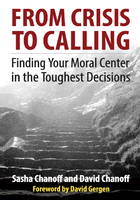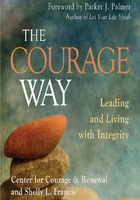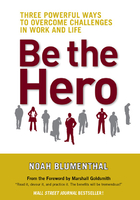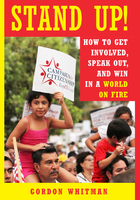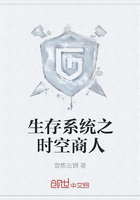Aspiring to Life
My search for life in organizations comes from years of working with people engaged, willingly or not, in change. Those seeing the need for change—regardless of their assigned role—see themselves as leaders, revolutionaries, bureaucrats, missionaries, the disenfranchised, the threatened, the empowered, the weak, or the chosen. When I listen to this chorus of voices, I hear a refrain. See if you can hear it as they sing out their many questions. The song begins with, How do we create organizations that:
yield a high return for what we are investing—all the time, money, material, mind, muscle, emotion, spirit, and energy?
sustain themselves through time and regenerate themselves through time?
contribute to the vitality of members and the surrounding community?
are self-aware, self-directing, self-moderating, and self-reflecting?
encourage members to become their better selves?
encourage other organizations to become their better selves?
respect the entire lives of people and organizations— physical, mental, emotional, and spiritual?
engage others in creating the purpose this organization is rising to?
recognize the value of life beyond this organization?
contribute to the world?
Visit any organization and you can hear the refrain. People are crying out their need to be different or better or more. They may be singing lamentations of pain from what they lack, or their songs may be celebrations of what they have. In any case, they have a sense of what is possible beyond what they now know; they yearn for that better place and they are drawn to creating it for themselves and for those who follow them. The refrain emerges from the singing of all the verses, all of the questions. Together they reveal the melody.
This chapter writes an answering song, one which feeds the need people are singing out for—like a love duet in an opera or musical in which passionately sung longings are matched with equally passionate promises of fulfillment, creating organizations that are:
a joy to work in.
celebrated by the communities they serve.
filled with daily reminders of higher values and purpose.
experienced as a "lifting tide" by everyone who works there.
committed to enhancing the lives of everyone touched by their product or service.
places where everyone would love to have their children work.
appreciated by owners as much more than just a good investment.
receptive to ideas coming from the communities around them.
dedicated to living for generations.
Imagine working in an organization that holds up these outcomes as its fulfillment. Because of its choices, it would be viewed by people as a valued contributor, a good citizen, a worthy employer, and a good investment for years and years. That organization would have celebrations and scrapbooks and web sites full of testimony, headlines and awards—external recognition testifying to its internal accomplishments. This is not to say that every customer and stockholder would be attracted to it, but it would be demonstrating what many are seeking.
If those are outcomes many of us are seeking, what might lead us there? I return to the answers offered in the previous chapter, Life and Ascendance. But it is a long path from discovering these answers to becoming an organization as fulfilled and fulfilling as we might imagine. The distance may be daunting, but the destination is compelling for those of us seeking higher organizational purpose and meaning.
Daily, immediate, and pragmatic reasons turn us away from ascendant opportunities. The priority is often short-term objectives that could be jeopardized, or there is no profit, or you don't get the credit; or the rewards are so distant and unlikely, or you don't know how to make this leap—all reasons to put aside your organizational dreams and keep doing what you have been doing. Go ahead; put them aside, but consider the consequences of this accommodation. Slouch back into familiar roles, doing what you have done for years to get recognition and money, dropping hope for anything more; leave the pursuit of higher goals to social agencies and churches. Find your reinforcement for this among co-workers also opting to play the old game. You will be making a legitimate choice—and in the midst of this, you will hunger for more.
Aspirations for Ascendant Organizations
Aspirations focus on aspects of the distant future an organization is drawn to creating. Aspirations provide an organizational morality, something that is "right," that the organization both reaches for and judges itself against. Aspirations are far beyond the products and services of the moment; they even supersede the type of business or agency or institution as it now exists. An aspiration serves not only the organization and its members, but the world; it embodies a spirit of participation in the success of the world around it rather than an isolation and greediness.
What might an organization aspire to in its reach toward ascendance and life? I will offer eight aspirations as answers to that question. Each of my aspirations points toward ascendance and life; each leans toward organizational completeness; each suggests action. Together they paint a picture of what I am reaching for. But my eight aspirations may not be yours. Use my list as the starting point for developing your own.
These eight aspirations are expressed from two perspectives: those of the individual member and of the combination of all individuals who form the organization. To return to the music metaphors used earlier, if the individual is the soloist, the organization is the choir. The individual's aspirations have a strength of their own, and blend to give voice and life to organization. Together, individuals create an organization that has a life of its own, both separate from and dependent on the people who formed it. Listen to the soloist and the choir, the individual and the organization in these aspirations.
Purpose
Individual: Work is an essential way I pursue my life meaning. I aspire to my better self, my completeness, my purpose through my work. I work in an organization that will live far into the future, providing future generations the opportunity for livelihood and fulfillment—as it has supported me and the people here before me.
Organization: Our purpose is our pursuit of what we aspire to become. We are drawn into the future through commitment to this purpose. Our purpose is advanced when people understand our intentions, our plans, our possibilities, and how they might participate. Explicit in all of this is our intent to survive and contribute for generations. Everything supports purpose—products, services, structure, systems, strategy, roles, members.
Worth
Individual: My sense of self-worth is enhanced by working here. My work is valued; I am valued. I work in surroundings and with people who respect what I bring and make good use of me. I take pride and satisfaction in doing worthwhile work.
Organization: We are acclaimed for the unique, substantive products and services we offer to the world and its inhabitants. We intend to create products and services that have a long and useful life. We want whatever we do to be valuable to consumers and to be recognized for the value it adds.
Stewardship
Individual: I am invested in making good use of the resources at my disposal. I feel responsible for the materials, information, people, equipment, money, and natural resources I work with. This responsibility comes with doing a good job and being a good citizen.
Organization: We are a model for other organizations in our stewardship of resources, be they financial, human, material, or natural. We see use of resources as the privilege accompanying our purpose, rather than a burden or a right. We know we earn this privilege, and that we make a difference in the world through how we exercise it.
Contribution
Individual: Through my work and the results of my work I see that I make a positive difference; I am a contributor. What I do goes beyond the work itself to the work environment and the lives of people I work with—and beyond to others who use what I produce.
Organization: We consciously and systematically ask what special contributions we might make to the marketplace and the world. We aspire to offer unique products and services with widespread benefits, not disproportionately accruing to some while neglecting others. We are contributing to an overall sense of global health and well-being. We intend to be generous in what we contribute and are seen as such. We want this world to be more full of life because of our presence.
(Before continuing, imagine possible uses for the four aspirations expressed so far. Eventually this high-flying thinking has to be brought down to the ground of daily reality. Consider the effect of these aspirations on plans, questions, discussions, analysis, commitment, and action. Imagine how an individual or a work team, or how you might use these aspirations. Take a minute to reinforce the practical side of this lofty list before moving on.)
Identity
Individual: Work provides opportunities for my personal discovery and expression. Work helps identify who I am by what I do. The workplace recognizes that I am more than just "a worker" but "a person who works." I have also learned about the talents and perspective that other people bring to work; I like the experience of working with unique individuals.
Organization: We define ourselves as a strong, individual organization. We help everyone inside and outside the organization to understand our present boundaries—what we are and are not. Our unique identity is important. Being clear about it enables us to work better with others different from us. We value their individuality as we value our own.
Interdependence
Individual: I expect to rely on others I work with both inside and outside the organization. I know that together we have the potential to do much more than we could do individually. I am willing to do the hard work of forming and maintaining a team because of the unique experience and results possible. My work also holds the potential for friendships that build from what we have done together.
Organization: We know and love the fact that our success is dependent on others. As much as we value our individuality, we know our life depends on many, many partnerships with other people and organizations in the world. We search for partners in our endeavors; we encourage a wide range of human interaction consistent with our purpose. We want to meet people's social needs as a part of their work. We expect and hope people will grow to care for each other as they depend on each other.
Community
Individual: My communities are essential to my life. In all that I do, I am a part of them. I value and feel valued by the communities I participate in—work, customer, civic, trade, and professional. I search out and identify with various communities of people joined in common purpose. I see them as vital to my learning, productivity, perspective, contribution, and identity. Our organization recognizes the importance of these communities.
Organization: We are active participants in the various communities in which we reside and serve. We strive to do our part to support the success of these communities; we know they are the source of our life. We encourage the growth of communities within our organization. They have become the primary locus for building the Searching for the Beauty talent, motivation, and accomplishment the organization needs. Our systems and structures are set up to respect these internal communities, involving them in the larger organization.
Hope
Individual: My work and workplace encourages me to expect the best of the future. I am inclined to see the possibilities in whatever comes my way at work. I know I can influence what is happening and I look for opportunities to do so. The future is important to what I do in the present.
Organization: We deal in a marketplace larger than money; we see a world full of opportunity—opportunity for us to pursue our purpose, to bring our aspirations to reality. We feel our responsibility to help create a world in which everyone sees positive possibilities in their future. We encourage others we work with to mirror our hopefulness, to avoid slipping into despair as a pattern of dealing with the world. We hold out great hopes, hopes that reach far beyond what can be accomplished in any one human lifetime—and all the more worth reaching for because of that.
These eight aspirations, rooted in the desire to create an organization that lasts for generations, uphold the importance of long life; all else is subordinate. These aspirations proclaim that today's greatest accomplishments matter because they support this organization's longevity. No product or service is sacred; no market or structure is untouchable. These eight aspirations infuse the organization with life; they don't just create systems or strategies, services or structures. The organization's products are byproducts of the aspirations. The main "product" is continued life of the organization itself. Everything is considered in relation to what gives this organization capacity for growing in the present and rising toward its future completeness. When we bring this down to one question, it is, "Does this serve Life?"
My eight aspirations may have elicited a few of your own, aspirations different from mine, hopefully in harmony with mine, but not necessarily. Note what you aspire to. What are you trying to create that might serve the world well now, and generations from now? What would you like to remind yourself of each day when you are in the middle of sorting out your work and life? Aspirations require a reach, and must be worth reaching for regularly, in the present, not just in the middle of a book. Returning to them consistently in the work setting changes that setting and the dynamics within it. That is the challenge: to embody, to in-corporate, them in the corporation, to make them part of the body of the organization. And how might we do that? You may have come up with some examples; here are some of mine:
Develop a list for your own organization, whatever it might be—yourself, your work team, your PTA. Ask yourselves, "What is it that we are reaching for together, that would result in the continued life of this organization, and would draw us toward greater fulfillment?"
Read or ask about organizations that have lived for hundreds of years through a vast array of political, social, and economic changes. What positive forces seemed to be at work in those organizations that allowed them to last through the centuries?
Imagine that tomorrow you will be speaking with your children or grandchildren or a class at a local school, telling them a few aspirations that have guided your life that you think could serve them well too. What would you tell them?
Read through your organization's literature searching for the implicit underlying aspirations that have guided it thus far. What is it that leader after leader, strategy after strategy, policy after policy, through good times and bad, has held forth for the customers? For the workers? For the communities? For the shareholders? For the world?
The Rewards
What might happen when we get intentional about our aspirations—personal and organizational? The rewards are different from the satisfaction of beating a deadline or satisfying a customer or pleasing your boss or finishing a project. When pursuing aspirations that will never be fully realized, we need some immediate rewards for progress we make. Consider the quality of the following rewards for you, the individual—and think about their organizational counterparts:
Your world becomes larger; there are more paths than you earlier imagined.
Your source of rewards is internal—and more under your control.
You have less panic when something goes wrong today.
Your sense of urgency is reduced; you are more patient.
You shift from blaming toward acceptance and forgiveness.
You apply yourself where you can be influential.
You are more intent on learning from all that surrounds you.
You are less attached to results while maintaining your investment in action.
You notice your progress in reaching toward fuller expression of yourself.
Your clarity about who you are gives you more control over your life.


